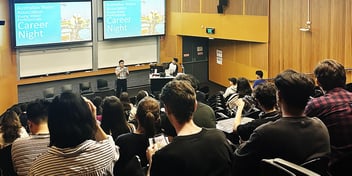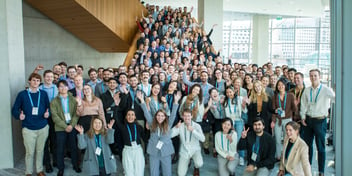Addressing the skills shortage in the water sector: attracting, training and retaining talent

The water sector in Australia faces a critical challenge: the ability to attract and retain a skilled workforce in a competitive labour market.
The Australian Water Association (AWA) alongside the Water Services Association of Australia (WSAA) has recognised this pressing issue and launched the Careers in Water program, aimed at addressing the sector’s skills shortage and securing a talent pipeline for the future. The Careers in Water platform offers a variety of resources to promote careers in water to school students, mid-career professionals and those considering lateral moves from other industries.
As part of this ongoing initiative, the AWA hosted a panel titled "Attracting, Training and Retaining Amazing Staff in the Water Industry" during its NSW State Conference held in Albury in August. The panel brought together experts across the water industry, including Rachael Corby (AWA), Brendan Guiney (NSW Water Directorate), Sophie Smith (Eire Construction) and Marnie Coates (MidCoast Council), with the session facilitated by Lisa Anderson (NSW Department of Climate Change, Energy, the Environment and Water). The panel focused on three key themes: attracting new talent, retaining existing staff and future-proofing the sector.
Attracting talent to the water sector
One of the major points of discussion was how to make the water sector appealing to job seekers, particularly in the face of competition from industries like mining, construction and energy. Stuart Khan from the University of Sydney highlighted the wide variety of roles available in the water sector, while Peter Gee from WSAA showcased the work being done to raise the profile of the industry through a national Employee Value Proposition (EVP) campaign. This campaign emphasises the critical importance of water for life and the unique opportunities within the sector, positioning it as a dynamic and rewarding career choice.
The panel and audience explored several strategies for attracting talent, including building relationships with local schools and careers advisors, attending career expos, and targeting underrepresented groups such as women and Indigenous Australians. These initiatives were underscored by the importance of promoting the sector’s contribution to sustainability, which resonates strongly with younger generations.
Retaining staff in the water sector
Retaining staff, especially younger workers, requires more than just competitive remuneration. The panel emphasised the need for organisations to cultivate strong cultures of mentorship, career progression and leadership opportunities. Rachael Corby, Head of Member Engagement & Experience, highlighted AWA’s National Mentoring Program, which provides early-career professionals with the support and guidance they need to thrive within the sector. The audience also heard success stories from different organisations, emphasising the value of positive workplace cultures and ongoing training to keep employees engaged and committed.
Future-proofing the water sector
Looking forward, the panel discussed strategies for ensuring the water sector remains resilient in the face of future challenges. With rapid technological advancements and increasing regulatory demands, the need for ongoing skills development is essential. Strategic workforce planning, knowledge transfer to younger employees and fostering a culture of continuous learning were identified as critical components in future-proofing the industry.
The session concluded with a call to action: to continue sharing inspiring stories about the water industry, both within and outside of the sector, to help raise awareness and encourage others to join this essential field.
One way you can get involved is through the AWA’s Ambassador Program, which provides you with resources to engage with your local primary and secondary schools to boost water literacy and promote the careers available.
To explore career opportunities in the water sector visit Careers in Water, Water Careers in Council’s and the NSW Government’s careers in water website.


